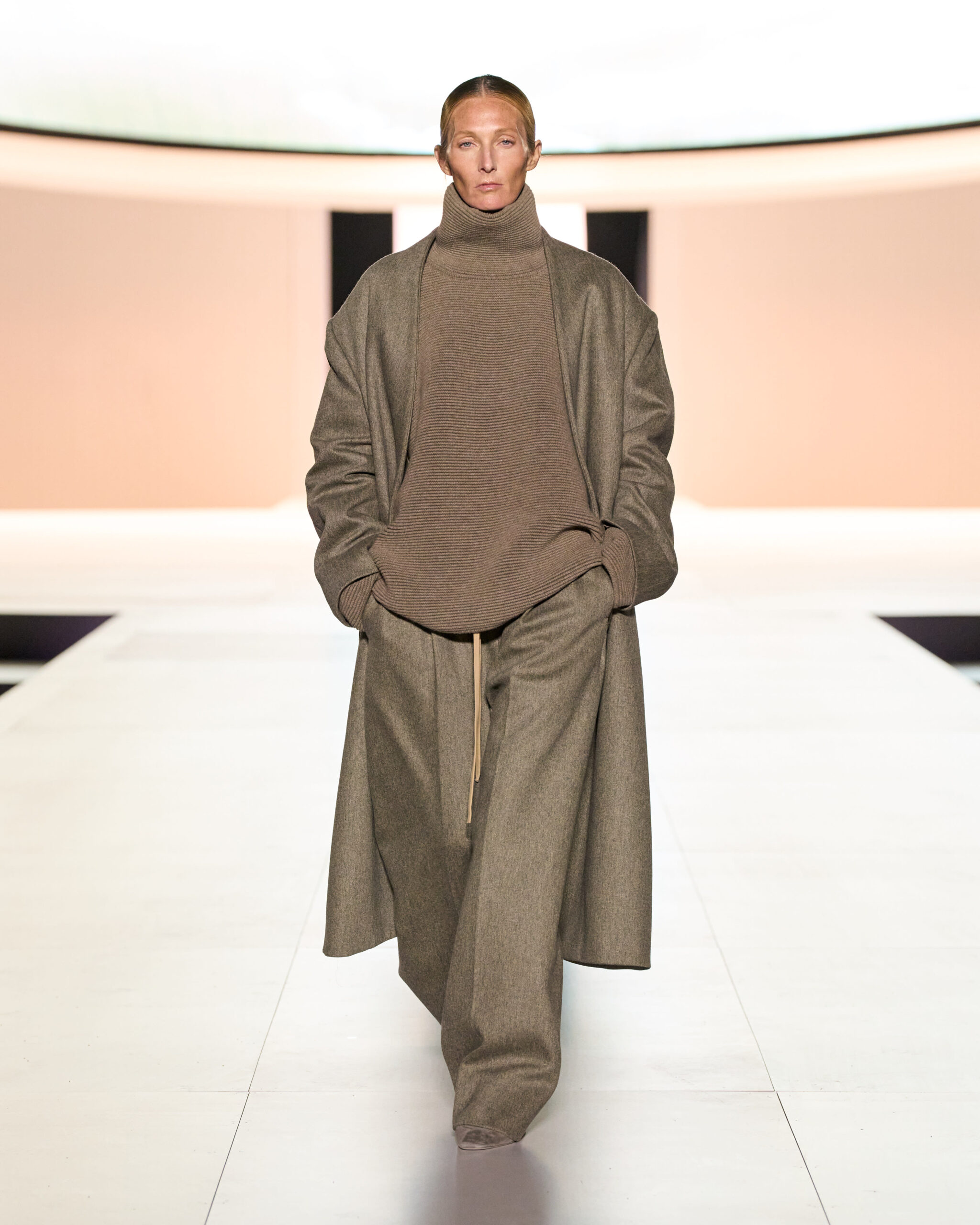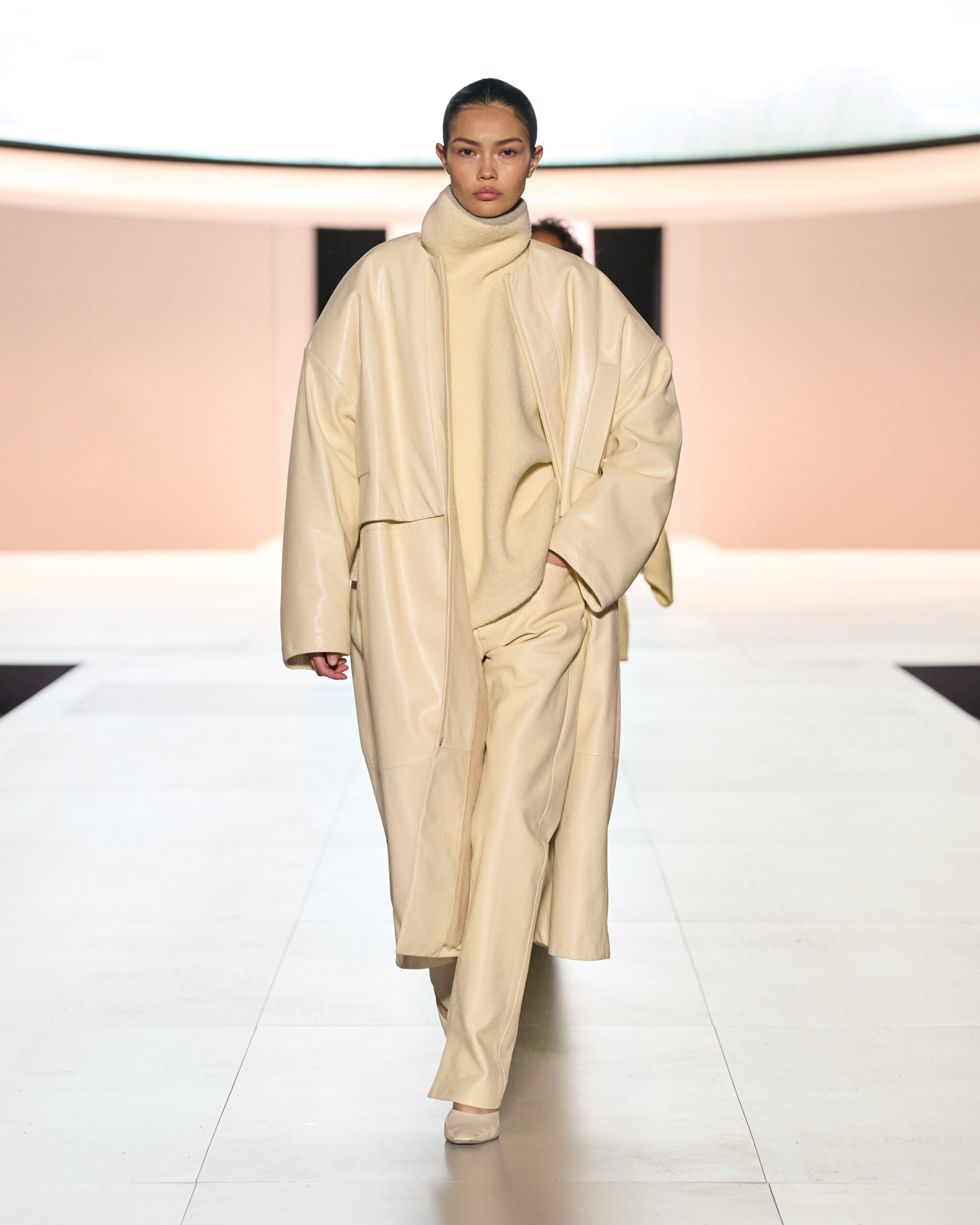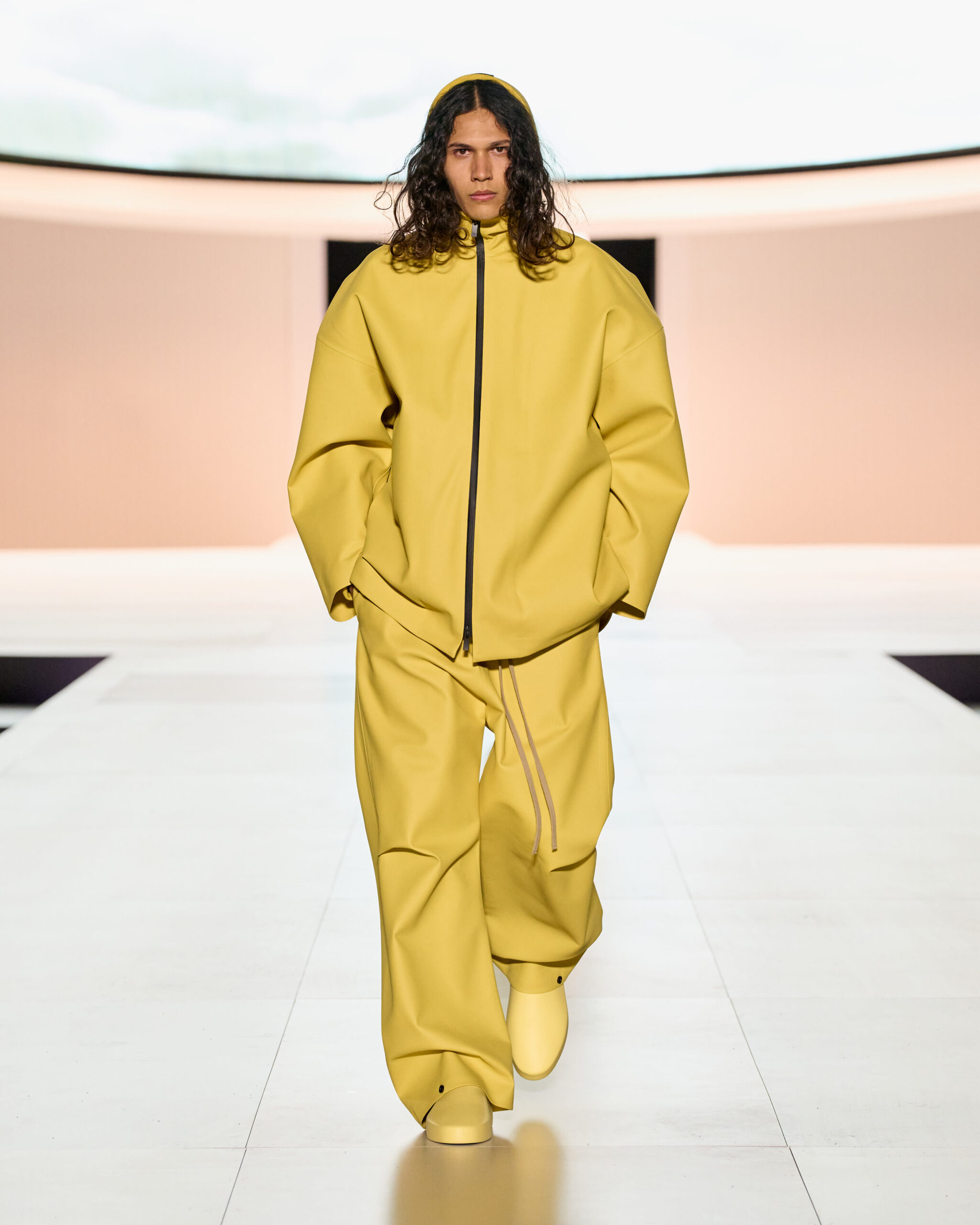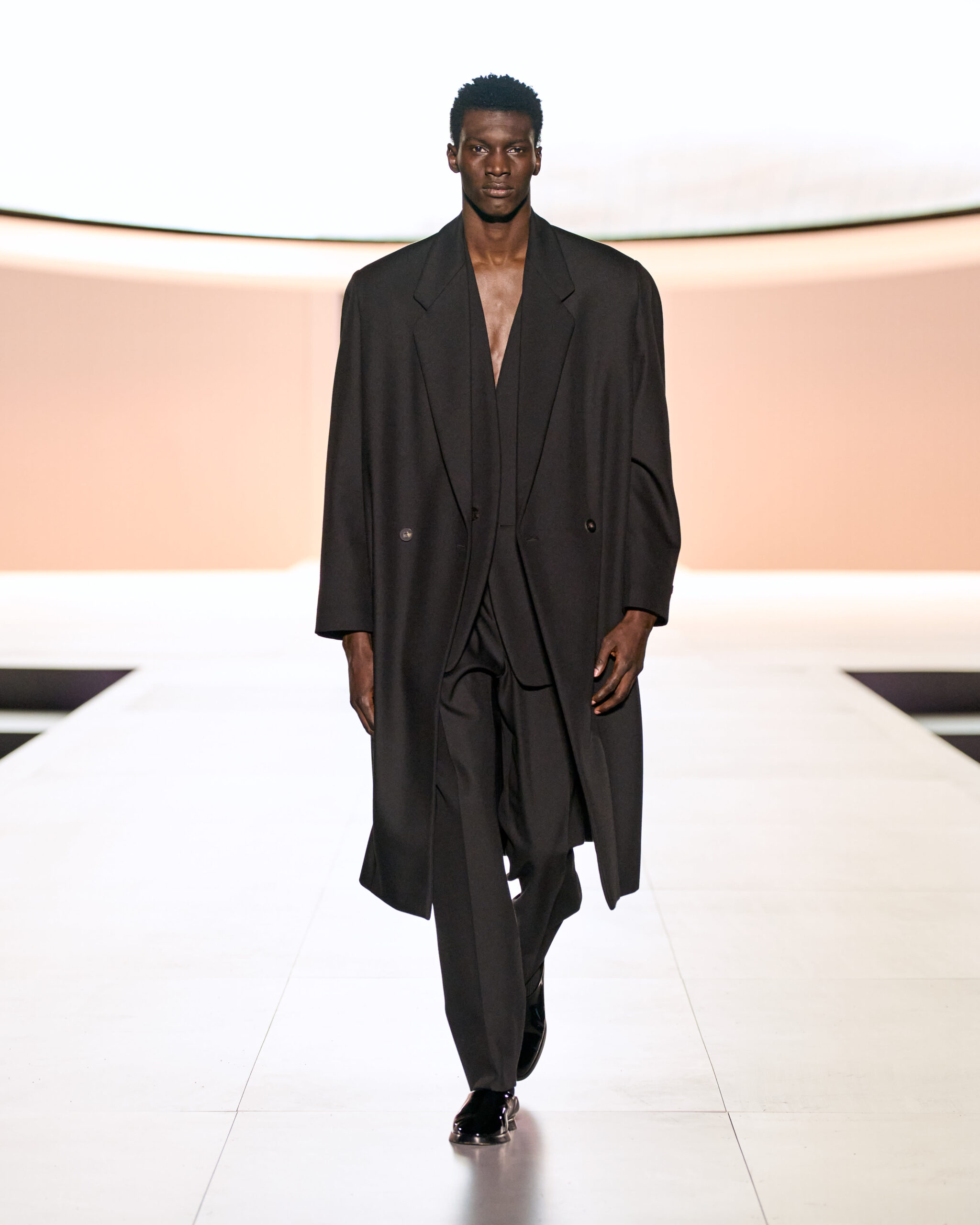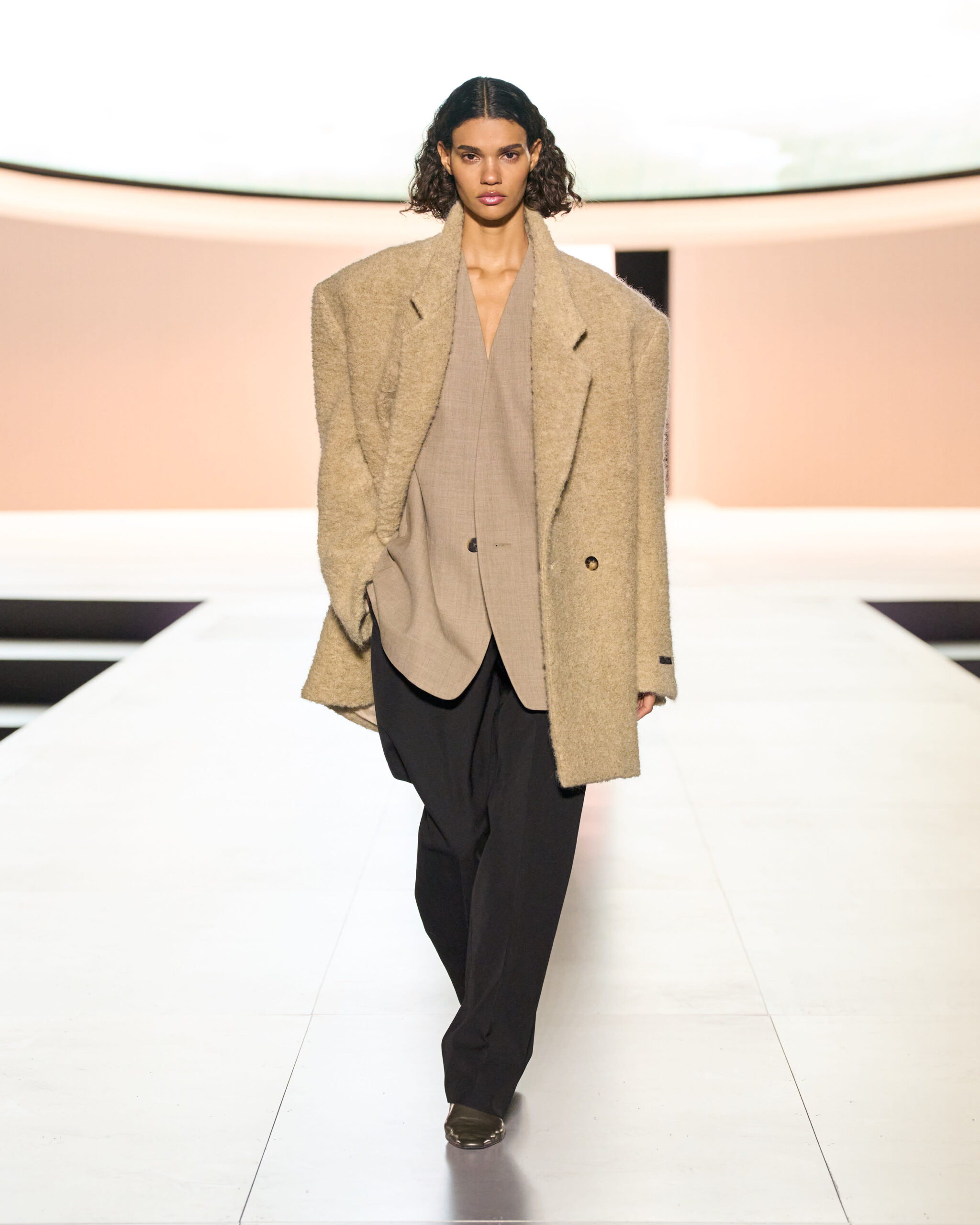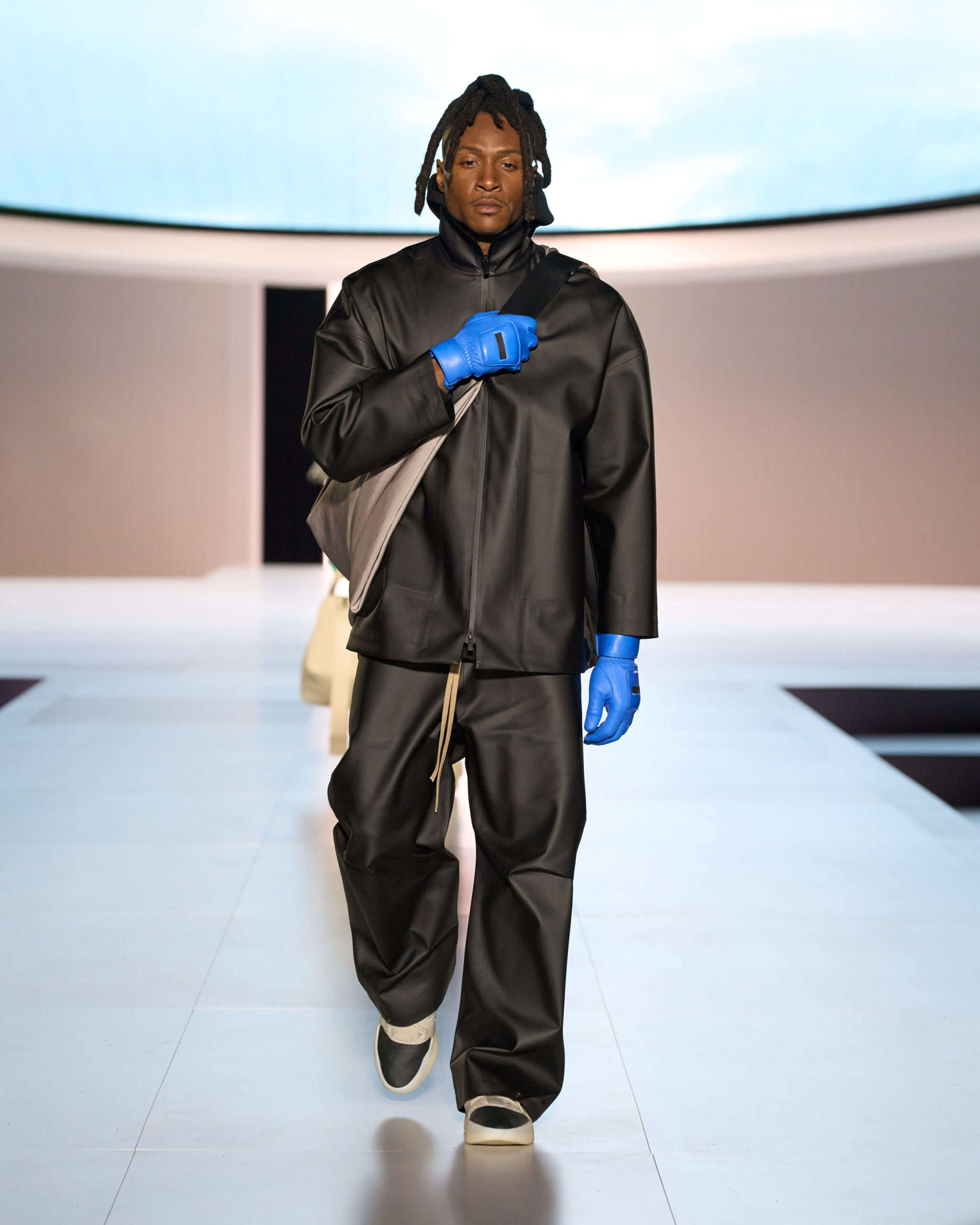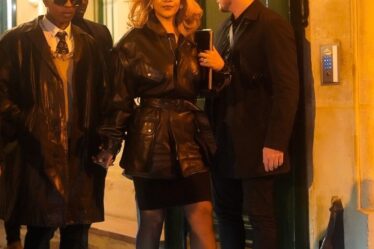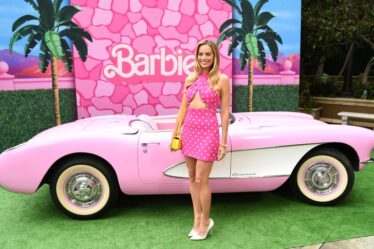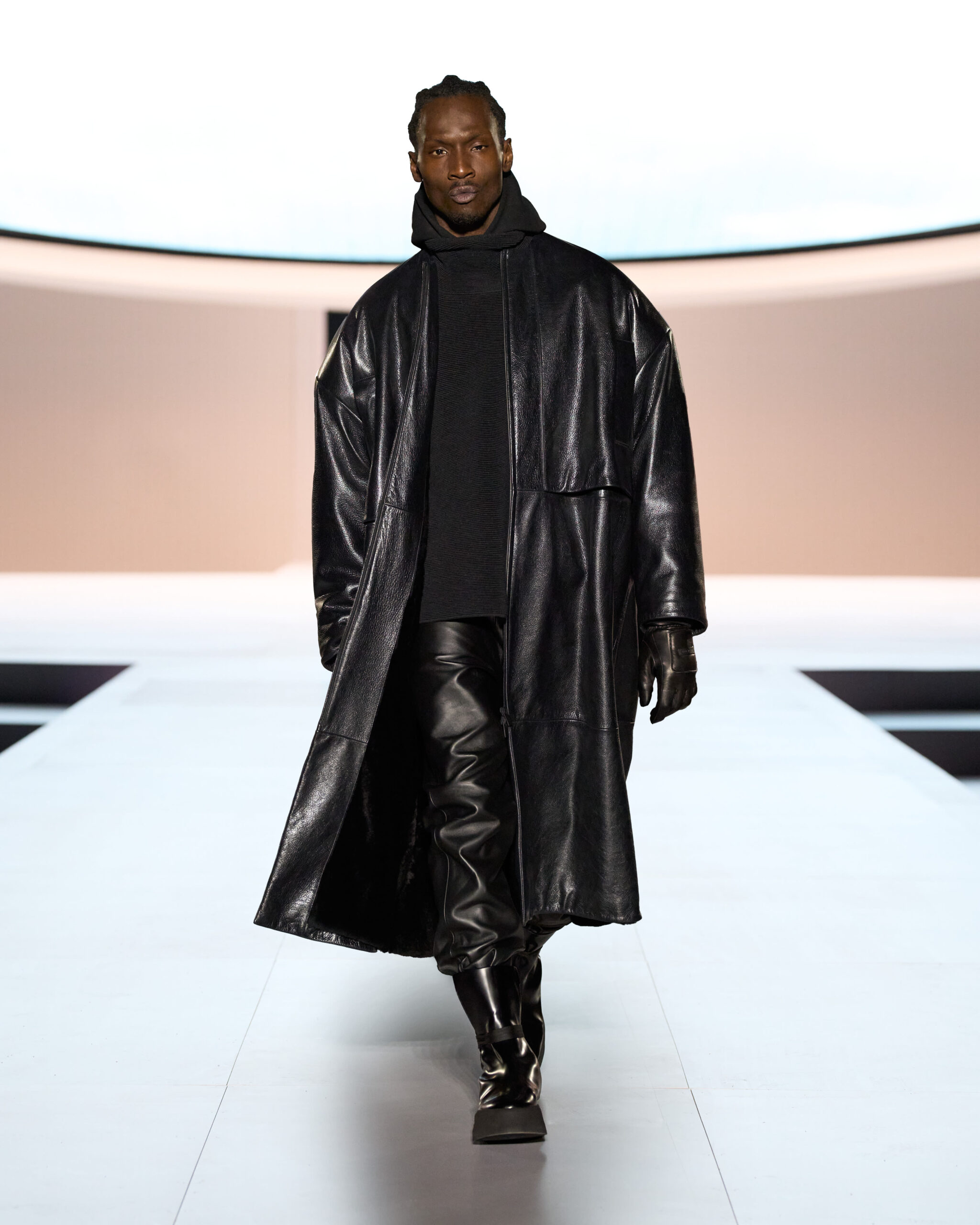
Given the brand’s conspicuous influence on American fashion, you might be surprised to know that, until last week, Jerry Lorenzo’s Fear of God had not yet held a proper runway presentation in its decade of existence. It makes sense, then, that Lorenzo chose the Hollywood Bowl as the site of FOG’s fall/winter 2023 show, an embodiment of California comfort and L.A. luxury. After the show, our editor-in-chief Mel Ottenberg tracked down Mr. Lorenzo to talk about his vision for American fashion, the cult of “inclusivity,” and taking style cues from his Major League Baseball star father.
———
MEL OTTENBERG: Hey, Jerry.
JERRY LORENZO: What’s up, man? Can you see me?
OTTENBERG: I can see you perfectly. How you doing? Are you tired after your first runway show?
LORENZO: Definitely. We had a full two days of interviews and merchandising the collection, and then I had my family at the house all weekend. I’m just waiting for a minute to exhale.
OTTENBERG: First of all, congratulations. I don’t know if there’s been a fashion show at the Hollywood Bowl before, but it’s a great idea.
LORENZO: The last one was Calvin Klein in ’93, like, 30 years ago. And we found that out after we decided to do it. But in terms of why now, I just felt like I had something to say and I felt as if the collection and my craft was finally at a place where I could say it in a live format. I felt as if my spirit reached a point where I felt like I really needed to express this collection, not necessarily a runway format, but in a Fear of God format.
OTTENBERG: Right. Music, friends, clothes?
LORENZO: Exactly. Speaking of music, before we even choreographed the show, we spent countless months laying out the story through music from that sample to the opening prayer. It just takes you along this journey musically, all the way through to Ray Charles. That informed the entire evening.
OTTENBERG: You were doing this music as you were designing the collection?
LORENZO: Yeah. Some of it was simultaneous, but we’ve been working on this collection for two-and-a-half years, even before we started eighth. And so a lot of these ideas, we’ve just been really perfecting for quite a long time.
OTTENBERG: It feels like a really good moment for Fear of God, not just with the show and the collection, but because of the relaxed, luxury tailored appetite.
LORENZO: I guess that’s just a blessing if it is. Again, we started this two years ago with the same perspective. I’d like to think that what we’re proposing somewhat transcends the current appetite. There’s an instinctual understanding of what’s missing in the market, and we’re just attempting to provide something that we feel doesn’t exist.
OTTENBERG: I don’t think it does. But I want it to. What’s exciting to me about this show is that it’s giving you American luxury at this iconic American institution. I was just listening to Marc Jacobs on a podcast the other day, and he was talking about how there used to be all these pillars of American luxury that have sort of disappeared. And I wonder what your take on American luxury is?
LORENZO: I think my take on American luxury is really the luxury or the freedom to be yourself. We’re trying to create garments that provide space for the individual to be seen, more so than the pieces. It’s kind of a quiet, effortless luxury. And if you want to tune into the pieces, you see the beauty and the hours that go into it. But if you’re not tuning into that, it’s not in your face and it’s not loud and crying for attention. I think there’s this level of humility that goes into it. And I think what we’re attempting to do is to free our consumer up so that they can be the best version of themselves. I know it sounds very idealistic, but a lot of times you get dressed up and you move into a proportion that’s a little less comfortable, that’s a little less how you feel the rest of the week.
OTTENBERG: Right.
LORENZO: When you step into this luxury point of view, it doesn’t always have to take you into shapes and sizes and fits that are restricting in some way. And I think when you’re speaking of American luxury, you’re speaking of that fluidness. I think American luxury 50 years ago, if you look at those pioneers, whether its Ralph Lauren or Calvin Klein, they had such a specific point of view for a specific group of people. Today, it’s a little bit more of a gumbo pot of all these different ethnicities and cultures that have some type of influence and point of view. And I believe there’s a thread that ties them all together. Look at the cast that we used on that night. It shows how the collection feels equally luxurious on all shapes and sizes and ethnicities and nationalities and genders.
OTTENBERG: Yes.
LORENZO: I really hate the word “inclusive,” but by nature of being a minority-operated company, we’re inclusive. It just really came out, again, through the product. The story, in my opinion, hasn’t changed from 10 years ago to today. But I think our craft and our product has evolved, and what we’ve been trying to say in terms of American luxury is evident in the touch and feel and emotion of the garments just as much as it is in the messaging around it.
OTTENBERG: Because you have this clear vision, right? It’s just gotten better and better over time, and now it’s time to show it. How do you evolve through seasons? Do you wear your stuff and then think, “Oh, I want this to just be a little more like this”? Because it feels like the clothes are not wearing the models.
LORENZO: No, it’s that simple. I don’t have an intention to change our message. I just have an intention to make it clear and better and better each year. I don’t think we’re going to have this crazy different point of view a year or two from now. I think it’ll just be more and more clear, very similar to Dieter Rams. It’s kind of the same thing, just tweaked and perfected each time. And I’m not attempting to say anything that’s different than who I am.
OTTENBERG: Who were you thinking about when you were designing this? Did you have specific uses for this collection?
LORENZO: I think I’m just kind of selfishly thinking of myself and betting on myself in terms of what I feel like is missing from my closet, and what I feel like is missing from my wife’s closet.
OTTENBERG: Perfect.
LORENZO: And if I step outside of that, I’m stepping into a place that’s—I don’t want to say unfamiliar, but just maybe not authentic. And I think there’s enough for me to say that will sustain me through whatever career this may be.
OTTENBERG: Is your dad the guy in the white mock-neck turtleneck at the show? I saw him backstage and assumed he’s your dad.
LORENZO: Oh, yeah.
OTTENBERG: That was chic.
LORENZO: I’m just so blessed. My dad was a big league coach, but really was on a minor league salary, and we were around millionaires for a little bit of my life. And we were on a budget, check to check, and my dad wore the same navy blazer to the ballpark every day. But in some weird way, he was still the coolest cat to me amongst all of his teammates. And as you mentioned, chicness and sophistication is something that comes from within. And so it’s really an exercise in stripping away details to let that personality be in the front. I felt like my dad was an example of that. And then my mom was just the best at taking something little and making the most out of it. My mom was an interior decorator, but on a budget. It was a beautiful home that was curated by antiques and vintage pieces that she just found throughout the country on road trips following my dad around. She just had a knack for identifying those things to make our house a beautiful and welcoming home. And so I’ve got this knack for being able to work within a sandbox for my mom in a level of masculine sophistication through my pops. And I think I’m pulling from both of these places, in addition to everything I’ve been exposed to in my 45 years on this planet, and expressing this message of American luxury.
OTTENBERG: What’s next? Are you going to go on vacation?
LORENZO: No. I mean, we spent two years developing this collection for Adidas. And I think we shared maybe only 10% of what we developed with Adidas from ready-to-wear to footwear.
OTTENBERG: Oh, wow.
LORENZO: Now, from a product standpoint, the rest of ‘23 and ‘24 is finally done, thank god. So it’s more about laying that out in terms of how that hits the world over the next few years. Potentially after we lay this plan out, I can take a few weeks off and just fall back for a little bit.
OTTENBERG: I’m looking forward to that as well. I mean, for myself. Jerry, thanks for taking the time to talk to me. It was really beautiful. I’m really into it.
LORENZO: I appreciate that. I know you see a lot of stuff, so that means a lot. Thank you, man.
OTTENBERG: Of course. Have a good day.
LORENZO: Thanks, dude. Bye, Mel.

